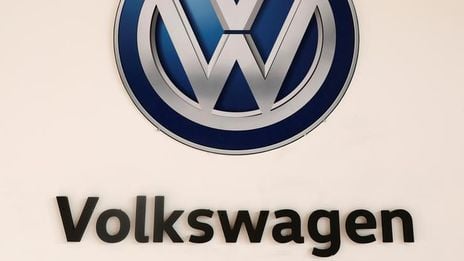RESTON (dpa-AFX) - The car manufacturer Volkswagen has made noticeable gains on the US market at the beginning of the year. BMW was also able to point to a slight plus. VW subsidiary Audi, on the other hand, did not perform as well, and experts also expect Porsche to have a difficult start to the year. Mercedes-Benz is also likely to have sold fewer cars. In general, US car buyers were price-conscious in the face of high new car prices and high interest rates and opted for comparatively inexpensive models.
The VW Passenger Cars brand, the core brand of the Wolfsburg-based car giant, increased its sales in the first quarter by 21 percent to a good 82,000 vehicles, as the company announced on Tuesday (local time). The Atlas SUV model, which is only available in North America, was particularly popular. The Jetta saloon also provided a significant boost. The cars are considered affordable for their model class.
In contrast, VW's top-of-the-range subsidiary Audi in Ingolstadt suffered a severe setback. Here, sales fell by 16 percent to just over 44,000 cars. Audi has not launched a new model for a long time, and analysts consider the model range to be comparatively old. However, the car manufacturer spread confidence in view of the long-awaited Q6 e-tron all-electric car, which is now in the starting blocks. Audi was also able to sell almost a third more of the battery electric vehicles (BEV) available to date - above all the Q4 e-tron and the Q8 e-tron - in the first quarter.
BMW started the year with a slight increase in sales. The Bavarians delivered almost 84,500 cars from their own brand with the white and blue logo in the first quarter, which was 2.4 percent more than a year earlier. The all-electric cars provided momentum, increasing by almost two thirds to a good 10,700 vehicles. The increase in electric cars, which are mainly available as saloons, helped to compensate for a somewhat weaker development in the more expensive SUVs, which account for the larger share of BMW's sales in the USA.
Porsche and Mercedes-Benz have not yet released figures for the US market. However, the US market researchers at Wards Automotive expect a significant drop of almost a third for the VW sports car subsidiary Porsche AG. The Stuttgart-based company had already referred to what is expected to be a bumpy year, as many new models are being launched in stages. The bestseller, the Cayenne SUV, for example, will be launched as a new model in the markets from fall 2023, and the new Macan will also be available as a fully electric version from this year.
Experts expect a slight decline at Mercedes. The BMW rival is currently experiencing problems with the supply of 48-volt battery systems by the supplier Bosch and was therefore already in trouble towards the end of last year.
Overall, based on the figures and estimates published so far for the first quarter, market researchers are assuming a lower sales volume for the US market than initially expected. In the USA, many cars are traditionally financed or leased, and the high interest rates are an additional burden alongside the still high prices of new cars.
The major Japanese car manufacturers in the USA, Toyota and Honda, were able to record significant growth, partly due to the good performance of affordable models. US car giant General Motors (GM) recorded a slight drop in sales overall. However, this was due to a decline in commercial fleet sales - GM scored points with private car buyers with compact cars such as the Chevrolet Trax. In contrast, the Group lost ground with large and expensive SUVs.
"Affordability is a big problem for the industry and will remain so in the future," said analyst David Oakley from market researcher GlobalData to the Bloomberg news agency. In view of this, he is surprised at how robust the market currently is.
Some brands such as Jeep, Tesla and Ford had recently lowered prices in order to win back inflation-stricken consumers and boost sluggish sales of electric cars. According to available data and estimates, a total of 3.7 million cars and light commercial vehicles were sold on the US market in the first three months of the year, around five percent more than a year earlier./men/he/ngu/mis





